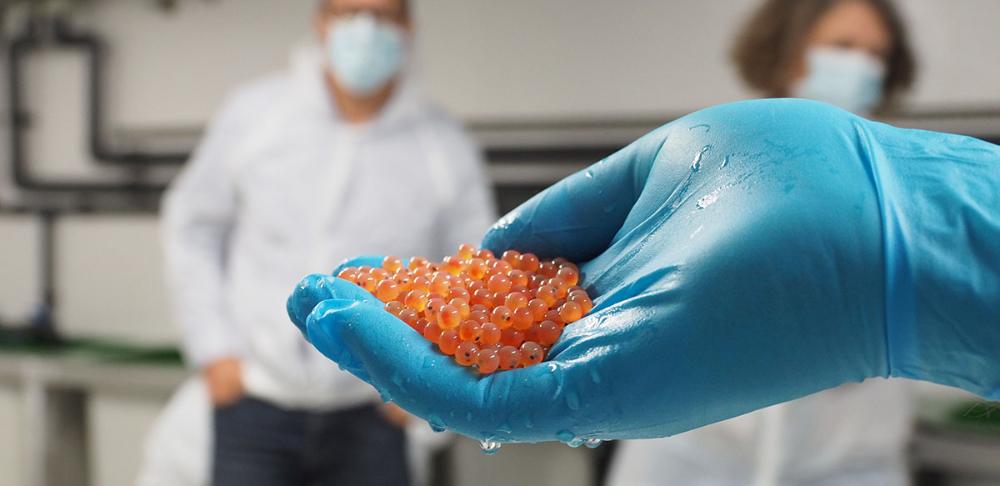What will you learn? - Health Management in Aquaculture - Master's Programme
What will you learn?
This is what you’ll learn
- Possess a broad knowledge at an advanced level in essential disciplines underpinning health management in aquaculture (immunology, applied microbiology, virology, etc.)
- Integrate understanding of fish and shellfish (micro)-biology, immunology, genetics and (viral) diseases in the use of aquatic organisms in aquatic production systems.
- Design and implement strategies for innovative health management in aquaculture
- Design a research plan in which the problem definition, hypothesis, research objectives and research questions are described in relation to relevant literature.
- Acquire a scientific approach to formulate and test hypotheses to design research protocols and to collect and analyze data.
Do you want to help secure global food safety?

With a Masters in Health Management in Aquaculture, you’ll play an important role in securing global food safety. With a world population expected to exceed nine billion by 2050, it’s estimated that we’ll need a necessary 70% increase in food production, to provide enough food for all. Aquaculture is expected to play a significant role in relieving the growing need for health, tasty and sustainably produced food.
For decades, the aquaculture sector is the fastest-growing food production system globally and is the only option to reduce the pressure on levelling or declining wild fisheries. Since 2014, its contribution to the supply of food for human consumption has exceeded wild-caught fish. With a Master in Aquaculture, you’ll gain knowledge and expertise that’ll be sought after by many employers in the years to come.
The programme consists of an initial common semester that is carried out at Ghent University, then in the 2nd and 3rd semester students can choose between 3 learning paths that will deepen their knowledge on a specific aspect of the overarching programme theme.
